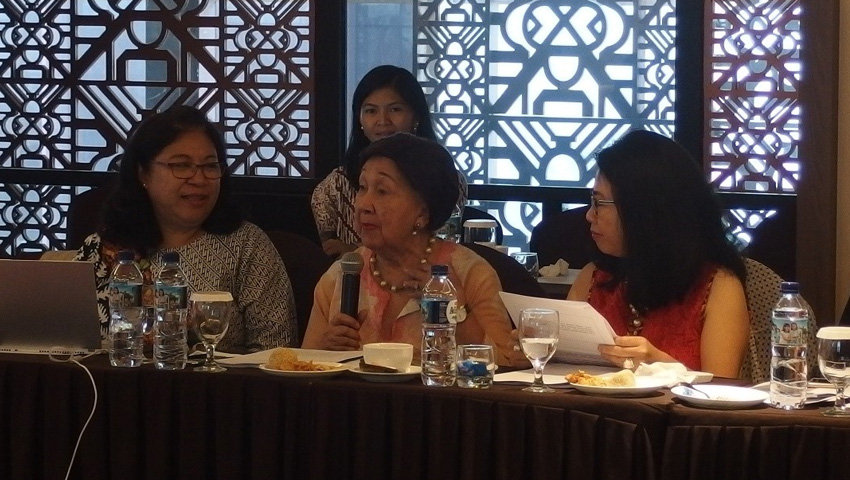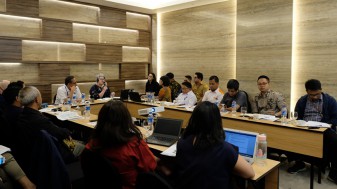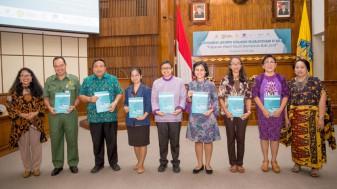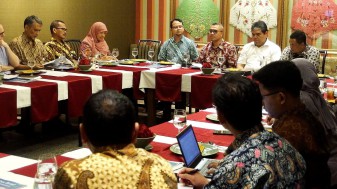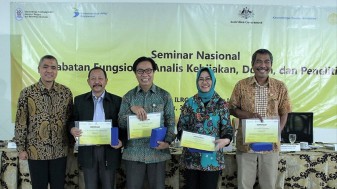Strengthening gender and social inclusion in research and higher education is key to improving research excellence in Indonesia. The program design of KSI seeks to mainstream gender into its overall work by integrating gender analysis into the production and use of research by the public sector, policy research institutes and civil society organisations. On 8 November, KSI held a full-day round-table discussion at the Grandhika Hotel, Jakarta. The theme was Women’s Research Centre in universities, and this was the first time in a long time that gender studies specialists could come together to share their experiences.
Renowned gender expert Lies Marcoes moderated the discussion and presenters included Professor Saparinah Sadli, the founder of the Gender Studies Program at the University of Indonesia; Bianti Djiwandonow who while at Ford Foundation 1985-1998 funded many of the early women’s research centres; Dr Mia Siscawati from the University of Indonesia Centre for Gender Studies; and Dr Kristi Poerwandari from the University of Indonesia, who in 2011 led the KSI diagnostic Study of Knowledge Needs and Supply Constraints for Gender Research in Indonesia’s Knowledge Sector
Also attending were 25 experts in gender studies representing universities, the Indonesian Association of Women’s Studies Centres, the Ministry of Research, Technology and Higher Education, the Central Bureau of Statistics, the Indonesian Institute of Sciences, the Provincial Government of Central Java, the Indonesian Academy of Young Scientists, NGOs, the media and KSI’s policy research institute partners.
The participants exchanged information on knowledge producers (women’s research centres), knowledge intermediaries and knowledge users related to higher education and the knowledge sector. The facilitator framed the discussion in the context Knowledge to Policy and included knowledge production, communications, networking and policies to support gender strengthening. It became increasingly clear during the discussions that Women’s Study Centre/Gender Studies have not made much progress during the last 20 years, in spite of international conventions and an increasingly strong sector. Reasons for this include weak regulatory support from the Ministry of Education and Ministry of Research,
Technology and Higher Education, increasing competition over university funds in which mono-disciplinary is prioritized, and a lack of regeneration in the study centres.
In conclusion, this was seen as an important first event, but more background information and knowledge sharing is needed. KSI is therefore collaborating with PRI partner Sajogyo Institute to do an assessment of the state of women’s research in Indonesia, including regulatory issues around the enabling environment. A second round-table discussion will be held in December 2016.

